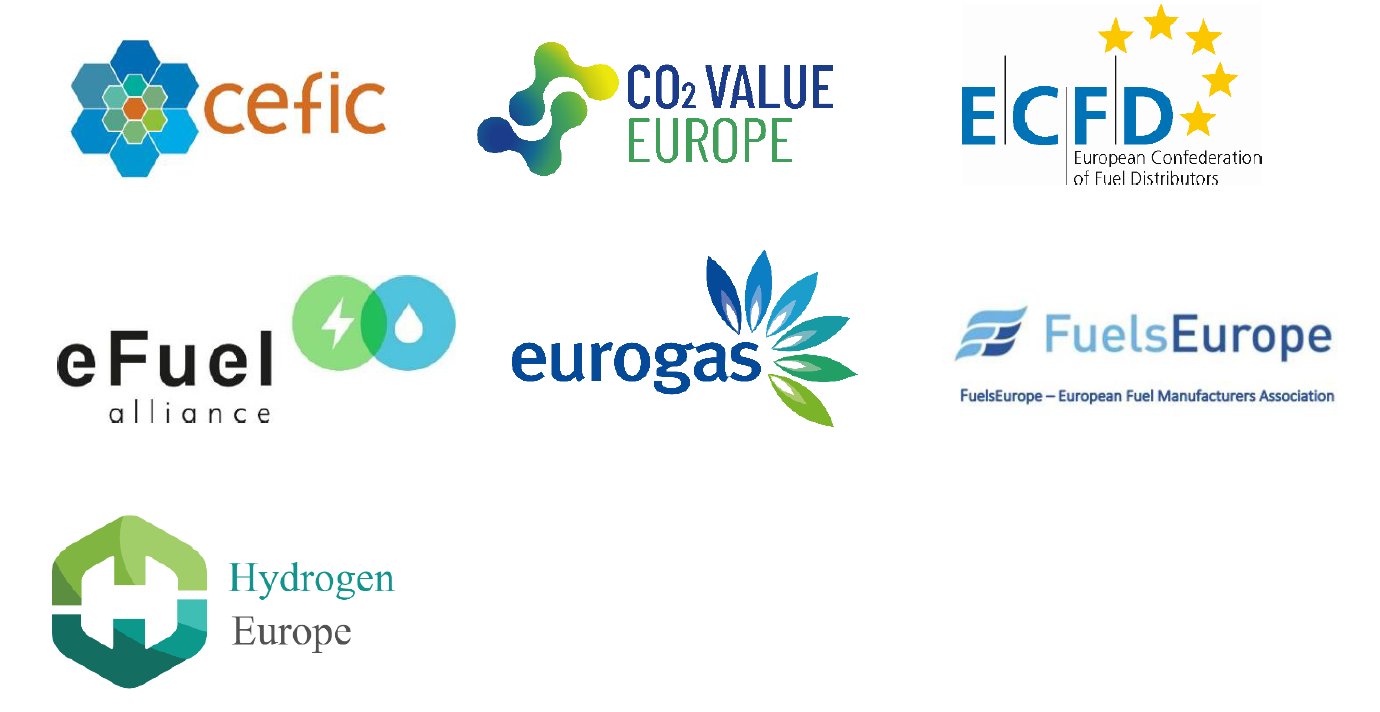Joint Industry Letter on the Urgent Need for an RFNBO Certification Framework
The signatories of this letter welcome the regulatory clarity provided by this week’s entry-into-force of the RED II Delegated Acts on Article 27.3 and Article 28.5 that define the production criteria for Renewable Fuels of Non-Biological Origin (RFNBOs) and Recycled Carbon Fuels (RCFs). Now, these production criteria need to urgently be complemented with comprehensive certification framework.
Our sectors crucially depend on the large-scale availability of RFNBOs, supplied cost-competitively and securely across the EU for meeting the objective of climate neutrality.
Despite the entry-into-force of the relevant production criteria, the absence of a clear certification framework still hampers the scale-up of the EU’s RFNBO market. A harmonised RFNBO scheme is an essential precondition for counting RFNBOs towards the regulatory mandates defined in the RED III, as well as for their commercial development.
Both producers and consumers of RFNBOs require certainty that those volumes of hydrogen that are labeled ‘RFNBO’ truly comply with the production criteria described in the Delegated Acts. This certification must apply consistently across the EU, as well as be enforceable for imported volumes of RFNBOs.
To advance the EU’s certification framework for RFNBOs, our sectors recommend to:
- Urgently Provide Implementation Guidance to Accreditation Bodies
- The RED II Delegated Acts leave unanswered a number of questions related to their implementation. These result from the legal text allowing for multiple, at times conflicting interpretations, , as well as from the difficulty of applying the EU’s production criteria to a non-EU regulatory context in the case of RFNBO imports.
- In the absence of EU-level guidance on the implementation of the Delegated Acts, certification and accreditation bodies need to clarify arising questions on an ad-hoc basis. This may lead to non-harmonised implementation. The resulting lack of visibility for consumers and producers threatens to further delay critical investment decisions.
- Ensure a Timely Assessment of Voluntary Certification Schemes
o To develop the RFNBO market in line with the EU’s ambitions, it is imperative that voluntary certification schemes are assessed and – if found compliant - approved in a timely manner. We invite the EU Commission to dedicate sufficient resources to deliver a timely assessment and subsequent approval of voluntary certification schemes of RFNBOs. - Ensure the International Enforcement of RFNBO Production Criteria for Imports
- The application of EU production criteria outside of EU jurisdiction presents unique enforcement and auditing challenges. We urge the EU to anticipate these challenges by coordinating the development of RFNBO certification closely with international certification and standardization bodies, and ensure the availability of trusted auditing channels in the interest of maintaining a global level-playing field and - crucially - trust in the label of ‘RFNBO.’
- Promote Consistency Across the EU Regulatory Landscape
- The Art. 28 (5) DA foresees that industrial ETS CO2 will not be considered anymore as avoided for the production of RFNBOs after 2036 (in the case of power production) and 2041 (for all the other cases). This undercuts investment in this technology pathway already today and runs counter to the incentives for CCU provided in other legislation (such as the EU ETS), or the recognition of its importance to reach climate neutrality in the CCUS Forum conclusions.
- Certifying a technology differently between different pieces of legislation reduces necessary investment certainty. Instead, we recommend recognising across policy files CCU’s role for achieving climate neutrality.
Our sectors stand ready to engage further in the discussion and provide any further input. We look forward to the swift development of comprehensive certification for RFNBOs & RCFs.



